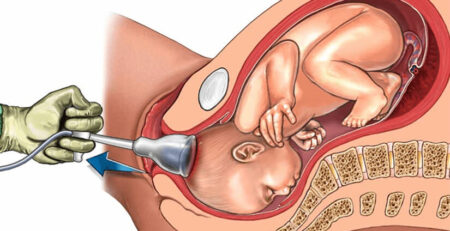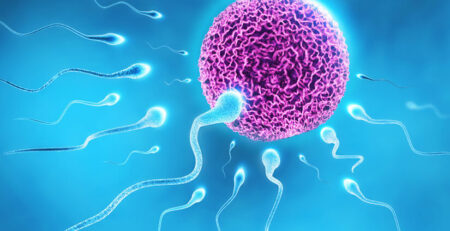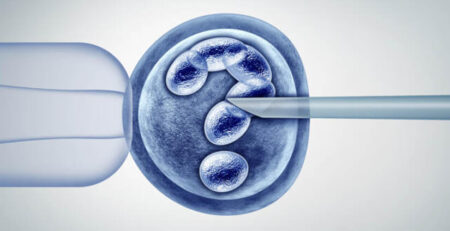After How Many Weeks of IVF Pregnancy Is Safe?
Lots of people dream about bringing a baby into the world, and thanks to modern medicine, even those who face challenges can have hope. In vitro fertilization (IVF) is one amazing medical advancement that helps people have babies when they might otherwise struggle.
When you hope to have a baby, each week counts. But in the case of an IVF pregnancy, you need to wait a bit longer to ensure that everything is smooth. So, if you are considering IVF treatment and curious to know how well it is going and how long it takes, keep reading!
How Many Weeks Does IVF Procedure Take?
IVF takes around 4 weeks to complete. It involves the fertilization of both the egg and the sperm in the laboratory, after which the embryo is transferred into the uterus. It’s initiated using fertility drugs to stimulate the ovaries and monitor them by ultrasound and blood tests. The trigger shot stimulates the final maturation of the eggs, and 36 hours later, they are retrieved. Under ultrasound guidance, at the same time, the male sperm is prepared for the process of fertilization. This is done by placing the sperm near an egg or by directly injecting one sperm into the egg with ICSI. Embryos are then cultured and monitored for three to five days, after which the best one or two are transferred back to the uterus via the vagina, and thus, the chances are positive that a pregnancy is achieved.
In What Ways IVF Can Help Couples?
In Vitro Fertilization (IVF) provides hope for most couples facing infertility. This advanced reproductive technology is greatly helpful in overcoming different types of fertility challenges. Here is how IVF can help:
Fixing Fallopian Tube Problems: IVF provides another way for women with blocked or damaged fallopian tubes to be able to get pregnant.
Male Infertility Solutions: In situations where the quantity or quality of sperm is low, IVF, especially with ICSI, gives a solution to fertilize by directly injecting one sperm into one egg.
Age-related infertility: Because fertility tends to decrease as age advances, IVF may increase the possibility of conception by selecting the fittest embryos in an older woman.
Genetic Problems: IVF offers the possibility of Preimplantation Genetic Testing (PGT), which allows testing on embryos in cases where couples are at risk of passing genetic disorders to their offspring.
Unexplained Infertility: IVF increases pregnancy chances by taking over the fertilization process for those couples who don’t find a reason for infertility.
Several Failures of Other Treatments: When several other fertility treatments have been tried and have failed, IVF is used as a more aggressive but often more successful form of treatment.
Control Over Timing: IVF can be used to effectively plan families, fitting in personal and financial conditions with the best timing that couples prefer.
Each of these aspects explains that IVF is more than just a procedure that increases conception chances but is also about personalized solutions for specific fertility challenges on the way to successful parenthood.
After How Many Weeks IVF Pregnancy is Considered Safe?
If everything goes smoothly, a good IVF pregnancy would result in a healthy pregnancy and baby. It’s natural to feel nervous until the baby arrives, but by about 12 weeks, you can tell your loved ones about the exciting news.
The First Trimester (Week 1 to Week 12): The initial 8- 10 weeks of IVF pregnancy are very crucial because, during this time, big changes happen inside your belly. The tiny embryo attaches itself to the wall of the uterus, and something called the placenta starts to form. This is the time when important parts of the baby, like the heart, brain, and spine, begin to develop.
Here is a catch. For those who get pregnant through IVF or even trying naturally, it’s important to know that there can be some extra risks during these early months. Why? Sometimes, the baby might not grow as expected, or the mom’s body might not be ready to support the baby. This can lead to miscarriage, which means the baby doesn’t continue to grow.
That’s why it’s important to follow your IVF doctor’s advice carefully before and after embryo transfer. They might advise you to take special hormones and keep a close eye on the pregnancy during these initial ten weeks.
Getting regular check-ups, doing ultrasounds, and having blood tests are all part of taking care of the baby and yourself during pregnancy. Eating healthy food and taking the right vitamins helps your baby grow strong. And, yes, it is super important to avoid things like alcohol, smoking, and some medicines that could harm your baby.
The Second Trimester (Weeks 12 to Weeks 28): The second trimester of pregnancy, from around the 12th week to the 28th week, is when the baby grows really fast. This is when things usually start to feel safer for you because the chance of problems goes down.
But remember, every pregnancy is different, especially the IVF pregnancy, and issues can still pop up. That’s why it’s super important to keep seeing your doctor regularly, especially if you’re doing IVF. They will monitor both the mom and the baby to make sure everything is going okay.
The Third Trimester (Weeks 28 to 40): The last part of pregnancy, from about week 28 until the baby arrives (usually around week 40), is called the third trimester. This is when things start getting really close to meeting your baby.
During this time, it’s super important to keep in touch with your doctor, listen to what they say, and get ready to welcome your little one into the world.
Importance of Hormones in IVF Pregnancy
Hormones are essential components in IVF pregnancy for keeping both mom and baby safe. In fact, the IVF procedure starts by giving extra hormones to push the pregnancy. These hormones, like progesterone, help ensure the uterus is ready for the embryo to attach and support the baby in the early stages.
These extra hormones are usually given for about 10 weeks after IVF. This time is super important because it helps the baby grow early before the placenta can take over and make hormones naturally. Without these extra hormones, the chances of the embryo sticking and the pregnancy continuing might not be as good.
Sometimes, people who undergo IVF pregnancy have additional difficulties that make it difficult to conceive. Hormonal issues, age, and previous losses can also complicate IVF. So, these additional hormones are critical for the embryo’s attachment and development into a healthy kid.
If everything is going well after about 10 weeks, your doctors usually stop giving the extra hormones. Then, pregnancy care is pretty similar to what you would get with a natural pregnancy. But even though the extra hormones stop, it’s still really important to keep seeing the IVF doctor at the IVF centre in Delhi regularly to make sure everything is going smoothly.
What are the Factors that Determine the Safety of IVF Pregnancy?
While IVF is the safest method to conceive babies, several factors contribute to its safety. These factors may include:
Mother’s Age: The mother’s age plays a big role in how safe an IVF pregnancy can be. According to research, women under 30 tend to have the best outcomes with IVF. For women over 35, though, the success rate is lower, and there’s a higher chance of problems during pregnancy, like stillbirth, miscarriage, having a baby with low birth weight, or giving birth early increases.
Also, women over 35 are more likely to develop pregnancy-related conditions like gestational diabetes or preeclampsia. But if doctors at the best IVF centre in Delhi carefully monitor things and check your health before starting IVF, they can ensure it’s as safe as possible and catch any potential problems early on.
Number of Embryos Transferred: How embryologists grade IVF embryos is super important for determining if the pregnancy has a good chance of working out. Sometimes, putting more than one embryo in during IVF can raise the chances of having more than one baby at once. But this can also cause problems during pregnancy, like high blood pressure, having the baby too early, or the baby being born too small.
To balance things out, doctors often try to put fewer embryos in during IVF. They use a method called Single Embryo Transfer (SET). This helps lower the chances of problems during pregnancy and makes it more likely for IVF to work. It’s a safer and more successful way to do IVF, and lots of fertility clinics use it nowadays.
Quality of Embryo: In IVF, good-quality embryos have a better chance of sticking in the mom’s uterus and growing into a healthy pregnancy. The quality of the embryo depends on things like how healthy the mom is, her age, and the conditions in the lab where the embryos are made.
During IVF, doctors at the best IVF centre in Delhi look at the embryos closely to see how they are growing and what they look like. They only pick the best ones to put back into the mom’s uterus.
Other Medical Illness: Any history of chronic medical illness, obesity or high risk factors for pregnancy-related maternal complications can also be risky for IVF Pregnancy.
Ready to Start Your IVF Journey!
While the initial 10 weeks are a crucial time for any pregnancy, IVF pregnancies require extra vigilance due to potential underlying conditions and risk factors. You can increase your chances of a healthy IVF pregnancy and delivery with proper care, medication adherence, and regular doctor visits.
If you are facing issues while conceiving naturally and looking for IVF pregnancy, consult with Dr Rhythm Gupta, a fertility specialist in Delhi and fulfil your dreams of starting a family.












